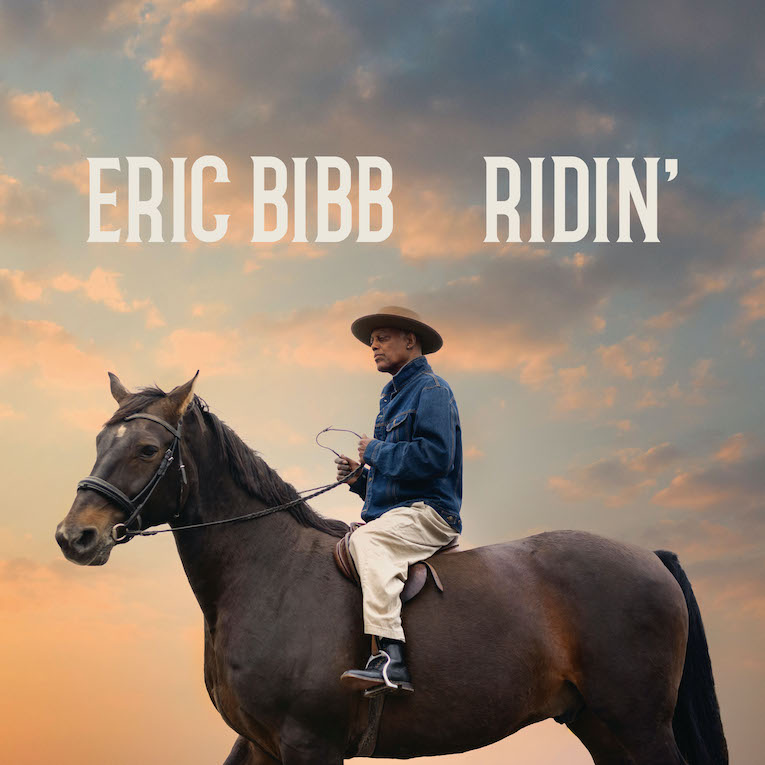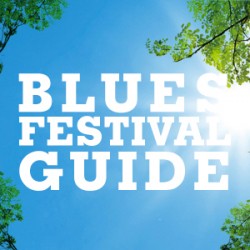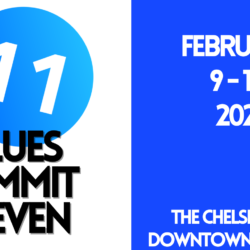May 2023 – Eric Bibb
Eric Bibb’s immense musical talents, his fierce and focused dedication to musical forms largely steeped in the blues and folk traditions, have long been coupled with his magnificent, immediately identifiable voice that is one of the most penetrating instruments of our time.
Bibb’s voice is one of authority, sensitivity, conviction, and understated power, while the songs he sings, no matter the source, have left many a listener moved, enlightened, educated and inspired thanks to a discography that is now closing in on some three dozen releases.
With his latest album Ridin’, Bibb frames a number of civil rights related stories into one offering. The timing of this release couldn’t be better, as Ridin’ is a musical rallying point that acts as a reminder of what the black North American population has dealt with for countless generations. It also comes at a time when forces of racism and hate gather at a place that now appears to be much closer than the horizon.
It is no easy feat to combine fifteen pieces of music that pinpoint specific and horrific tales of injustice, with those that tackle overarching themes of struggle and resisitance, and come out the other side with a such a complete piece of work that is charged with indignation and determination, yet is musically riveting throughout the entire ride.
The multiple combinations of instrumentation and vocal arrangements are a reminder of what a deep well Bibb draws from, and what makes him such a distinctive artist when he gets into his brand of musical alchemy. Then there’s variety of grooves, all of them consistently deep trenches, many of which co-exist with wonderful melodies. Each piece has its own firm setting but all of the offerings roll together with a fluidity that makes for a wonderfully engaging listen on every level.
The title track, the second song in, is gripping and gritty. Although it kicks in with the spare sound of Bibb’s acoustic guitar and voice, it’s a bass drum that starts driving the beat before some haunting slide guitar rips the piece wide open while Bibb’s voice surfs the groove, imploring that freedom is an undeniable goal.
Taj Mahal shares the vocals with Bibb on “Blues Funky Like Dat”, where an infectious rhythm, and lyrics, give a big nod to the groove and sound of a respected Atlanta preacher. All of it bouyed by the glistening metallic slide riffs of Jontavious Willis.
Many of us will remember John Griffin’s sixties book Black Like Me, that documented a white man’s transition to being colored under a doctor’s care. Bibb retells Griffin’s eye-opening and brutal story with admiration and appreciation.
Ridin’ really is one exceptional piece after another. Whether it’s the oft-recorded gem “500 Miles” that is sung by Bibb with a sombre sense of loneliness and isolation that lifts up its great melody, or “Tulsa Town”, where the bottom end of its sonic range delivers a brooding beat that foreshadows the impending horror of a white mob’s massacre of a black community in Oklahoma in 1921.
There’s an interlude that allows the lyrical focus to shift into sounds of hope and resistance. The piece “Joybells” is one of many the emotionally stirring songs of the collection as Bibb closes the piece with the recitation of names of black men who were murdered.
Additional guest appearances by Harrison Kennedy, master jazz and blues guitarist Russell Malone, Habib Koite and a female chorus are all perfectly placed, and soulfully played and sung by those artists. By the time Ridin’ rolls to a close with Church Bells, it’s evident that a masterpiece has been created by Bibb with considerable help from his musical friends, with producer Glen Scott deserving a special mention.
Recordings of such substantial depth and artistic brilliance as Ridin’ don’t come along very often, nor do artists like Eric Bibb. (Peter North)










